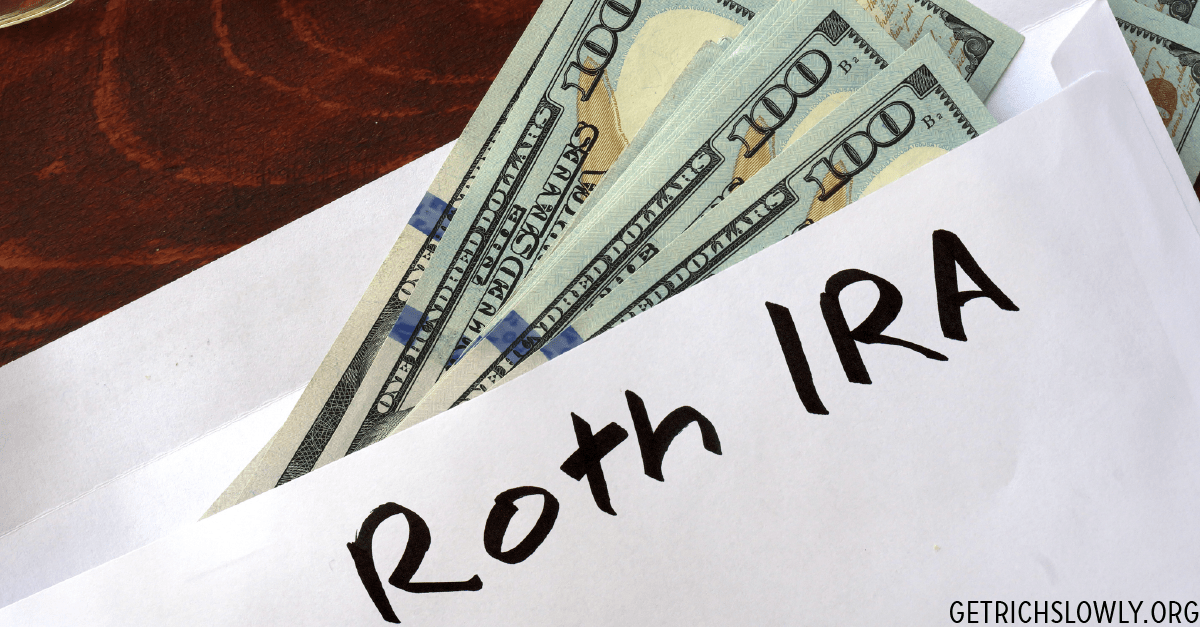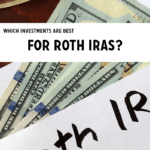Which investments are best for Roth IRAs?


So you are in the market for a Roth IRA, that popular, flexible, tax-advantaged vehicle that can be used to save for retirement — smart choice — but here comes the next question: which investments are best for a Roth IRA?
Roth IRA Mutual Fund Options For Investment
There are three basic options for your Roth IRA investments:
- Index funds
- Exchange traded funds (or ETFs)
- Managed mutual funds
It’s essential whatever you choose it has as low an expense ratio as possible. Small fees can really add up. The expense ratio is what the fund charges you to run it, reflecting operating expenses such as compliance and other administrative costs. Even the cost of marketing the fund to you is passed down in some way through the expense ratio.
One very popular investment vehicle, The Vanguard Fund, has an average fund expense ratio of 0.18% and many investors see it as a low-cost leader. Regardless of what you choose, make sure you know the fund expense ratio and it’s as low as possible, for sure under 1%.
Here’s more about each:
Index Funds
A mutual fund that invests in indexes which are compiled and calculated independently, such as the Standard & Poor’s 500.
Two main attractions with index funds:
- Index funds typically offer the lowest cost to manage your investments. (Since you are not doing it yourself, there’s no escaping having to pay someone else. The goal, of course, is to keep that amount as low as possible.)
- Index funds generally outperform managed funds. You would think a paid professional who runs a mutual fund would do better than a market average, but history has consistently proven that to be a false expectation.
Related >> How to Start a Roth IRA
By far, the most popular index funds mimic the S&P 500 stock market index. There are other funds which purport to be index funds; however, they don’t track an actual index. (Bond funds, for example, are called index funds simply because they offer the low management costs commonly associated with index funds.)
Exchange Traded Funds (ETFs)
One of the benefits of investing for your retirement through a Roth IRA (or a traditional IRA, for that matter) is the fact that you are not restricted solely to mutual funds. Through an IRA, you can invest in individual stocks, which opens the door to ETFs, which are nothing more than mutual funds which trade on a stock exchange just like stocks.
Related >> Considering EFTs
Most ETFs are index funds, but they offer a wider array of specialized investments. For instance, if you want to invest in gold, there are several ETFs which allow you to do that. One such ETF (which uses the GLD symbol) owns the actual gold bars, and they hold more gold than all national governments except the big three.
ETFs offer low costs, but not always quite as low and the index funds referred to above. If cost is an important consideration for you — and it should be take the time to check out all the costs of anything you want to invest in before you take the plunge.
Managed Mutual Funds
Although somewhat maligned recently, managed mutual funds still account for more than 70 percent of all retirement investment funds. There are a few reasons for that:
- Convenience. Managed mutual funds are usually the most convenient way to invest as an employee.
- Low risk. They are the oldest of the three options listed here, and have proven themselves to be pretty safe in terms of risk.
- Variety. They offer by far the widest variety of specialized investment options. For instance, if you don’t want any investment dealing with GMO, tobacco, or other issues, you are more likely to find a managed mutual fund to meet your needs than an ETF or index fund.
Related >> A primer on mutual funds
The popularity and wide variety of managed mutual funds come with two penalties, though:
- High cost. Of the three options, managed funds usually are by far the most expensive. You may see rates which look low, e.g., 1.5 percent. Remember, though, that your long-term return is unlikely to be more than 7 or 8 percent. That means they will take 20 to 50 percent of your annual growth. That’s a steep price for many.
- Bewilderment. It is not easy to distinguish between the bewildering arrays of managed mutual funds. They all seem to offer things like value and growth, and you never know which buzzwords are simply marketing gimmicks to get you to pick their fund.
When you consider that index funds and ETFs are generally simpler and cheaper, it’s easy to understand why they have grown much more in recent years at the expense of managed funds.
Conclusion
Most people consider the best way to invest through a Roth IRA is by putting your money every month into index funds. They typify the get-rich-slowly ideology. Some of you will want to purchase individual stocks in your Roth IRA. Some will want to purchase real estate or invest in precious metals. If you make educated decisions, these can be excellent moves. However, for most investors, index funds are a smart way to own a piece of the market while mitigating risk.
Part 1: The extraordinary power of compound interest
Part 2: What is a Roth IRA and why should you care?
Part 3: How to open a Roth IRA (and where to do it)
Part 4: Which investments are best for a Roth IRA?
Part 5: Questions and answers about Roth IRAs
Learn More:
Safety – the Main Objective for Retirement Investments
The main objective of any investment for retirement is safety: You don’t want to invest in anything risky. You may enjoy investing in things like individual stocks or property, but we all know those can be risky investments. When it comes to your retirement funds, you want to stay away from things with inordinate risk.
Flexibility is a Good Thing (Unless It’s a Bad Thing)
The fact that you can use a Roth IRA to hold a variety of investments is good news – it offers flexibility. What’s good about it is that you can invest in pretty much any type of investment through your Roth IRA – stocks, bonds, exchange-traded funds (ETFs), mutual funds (including index funds), and even real estate.
The bad news is that you can invest in pretty much anything – including things which might not work for you. For instance, if you thought Twitter was going to be a good stock to invest in, you would be banging your head against a wall right now.
Consider This When Selecting an Investment
With a clear understanding of the purpose of an IRA – a tax-advantaged vehicle designed to help you save for retirement – we can begin to answer the question about which investments are best for a Roth IRA. Here’s what to consider:
Funding
By far, the majority of the population earns their living from a job, which typically gives them two paychecks every month. The Roth IRA is perfect for that since you can easily put away a certain amount every month, a little bit at a time. But investing in rental property is quite a bit more difficult (effectively precluding that type of investment for many) because it requires a big chunk of money at a time.
Automation
If you’re like most people, setting time aside to make investment decisions is a challenge because your life is a daily whirl of activity. The tactic most successful people use is automation: They have a set amount deducted from every paycheck which is then automatically deposited into their Roth IRA account. For automation to work, you want to pick an investment which lends itself to a set amount invested every two weeks or so.
Basic Investing Concepts
It’s a mistake to jump into investing and make your decisions blindly. Before you begin any investment program, it’s important to have an understanding of basic concepts. Here are a few posts on some important topics:
- What is a bond?
- What is a stock?
- What is a mutual fund?
- Types of mutual funds
- The importance of diversification
- What is a stock market index?
You may also want to Google articles on risk tolerance and asset allocation. To learn more about investing, head to your library and borrow one of the following books:
The Bogleheads’ Guide to Investing
A Random Walk Down Wall Street – by Burton Malkiel
The Only Investment Guide You’ll Ever Need – by Andrew Tobias
Saving and Investing – by Michael Fischer
These books will help you become acquainted with concepts like asset allocation, diversification, risk tolerance, stock valuation, and more. The better educated you become, the better investment decisions you will make.
Become A Money Boss And Join 15,000 Others
Subscribe to the GRS Insider (FREE) and we’ll give you a copy of the Money Boss Manifesto (also FREE)

